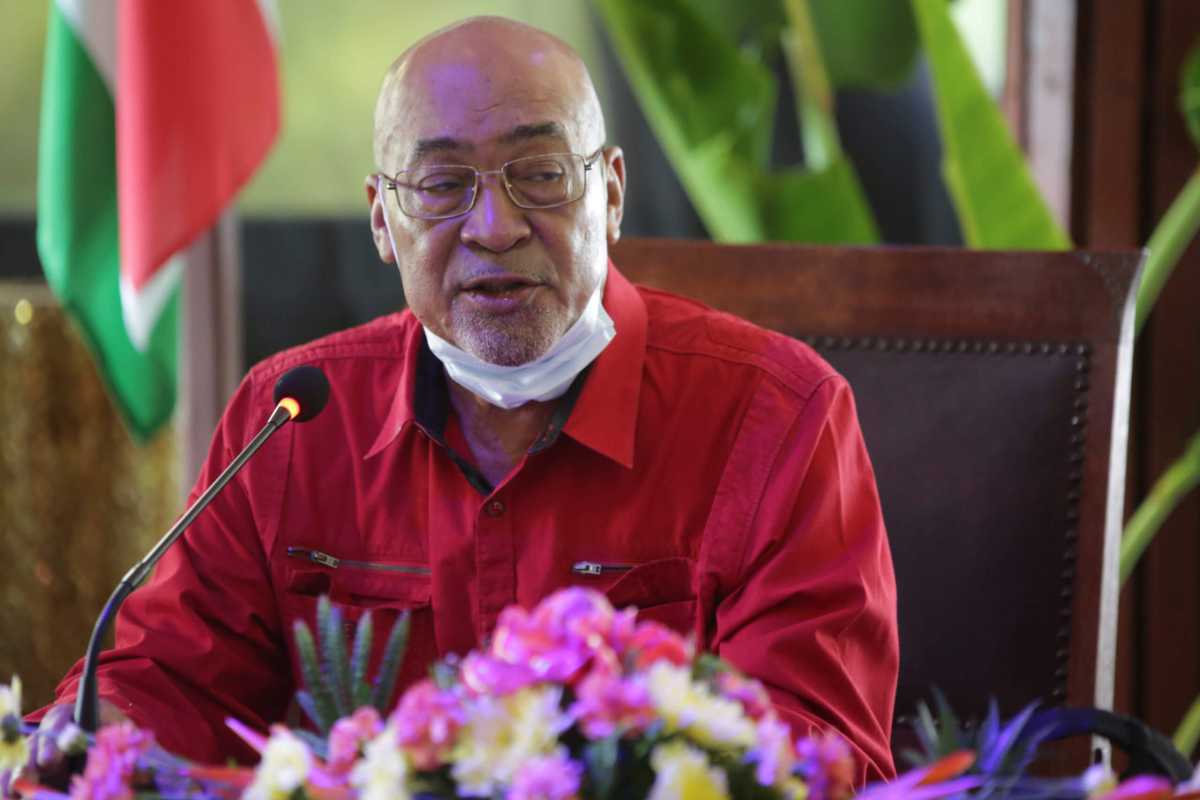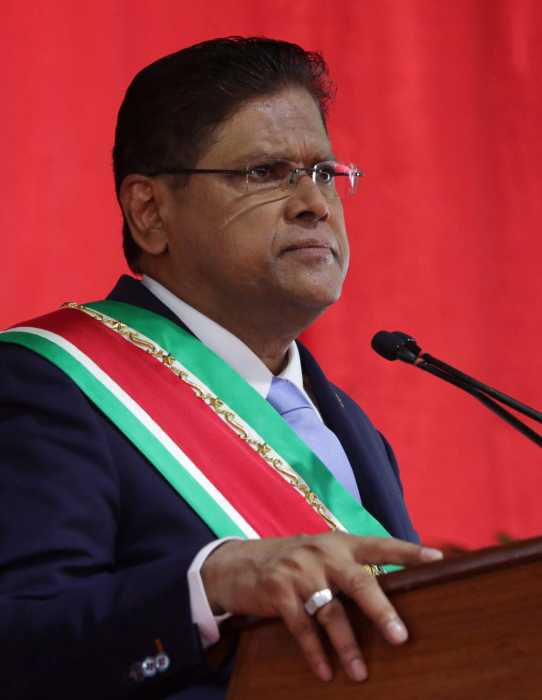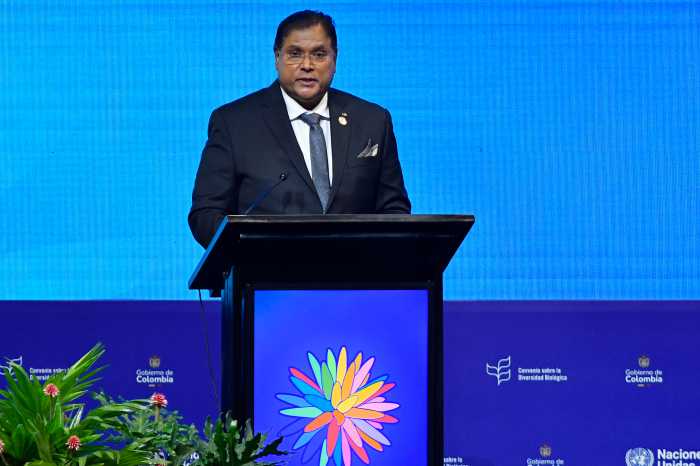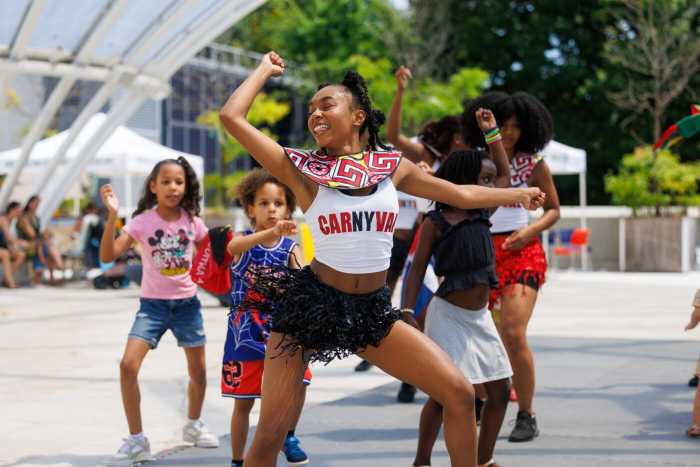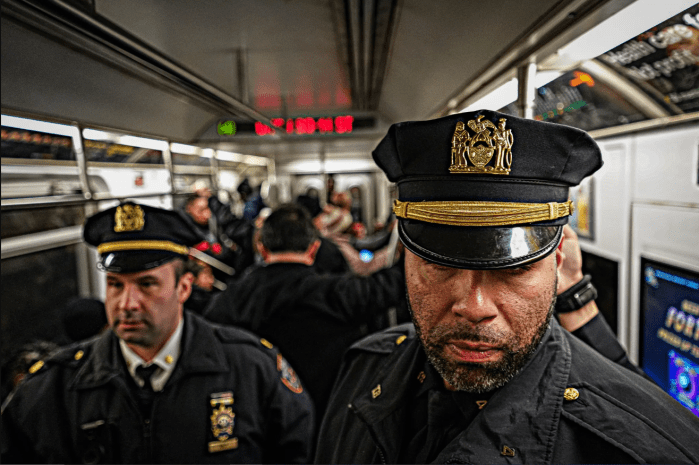On Sunday, March 20 the relatives of three policemen who were executed while on duty during Suriname’s bloody interior war in the 80s, staged a lightly reported memorial service for the officers at a monument to their memory, but despite the small turnout rights activists say, the real aim of such events are held to remind citizens of the atrocities of the period of military rule and to prevent any government with former military links from returning to power anytime soon.
The December 8th Foundation organized the service, which has led the fight over the last four decades to push for criminal charges against former military strongman and two-time president Desi Bouterse, rank and file soldiers and civilians who had participated in the Feb. 25, 1980 bloody military coup that had deposed the elected administration of President Henck Arron. Just two years later on Dec. 8, 1982, some of the same over zealous soldiers executed 15 government opponents including four journalists, clergymen, labor leaders and academics for allegedly collaborating with the west to reverse the coup in one of the worst documented acts of mass murders in the 15-nation Caribbean Community.
Deciding that the security and democratic situations were spiraling out of control, the Dutch, Suriname’s former colonizer, the French which controls neighboring French Guiana and the US collaborated on a program to undermine military rule by funding a guerilla movement with strikes against military and government installations mostly in the interior. A full scale bush war erupted with military attacks on villages suspected of assisting the rebels. Official figures recorded more than 500 deaths including the bloody massacre at southeastern Moiwana Village where soldiers wiped out more than 50 elders and children.
The war ended with help from the Organization of American States (OAS) and other mediators at the turn of the 90s but rights organizations like the December 8th Foundation say they are committed to ensuring justice for those who died back then.
“No progress can be made as long as a climate of impunity persists. We are gathered here to remember but also to denounce the cowardly murders of these sons. Policemen who were lifted from their beds in undergarments by a murder squad and taken to the police station. Two policemen managed to escape. Fortunately the death toll was not higher,” Foundation and Chairman Sunil Oemrawsingh was quoted by Star News online newspaper as saying at the ceremony.
People like Oemrawsingh continue to oppose political elements from the 80s holding political power, including Bouterse, now 76, ailing but still leading the multiracial National Democratic Party (NDP). The NDP lost to a Hindustani-led coalition two years ago but judging from a huge mass rally it held in the capital last month, it is reorganizing to recapture its political base in time for the next general elections in 2025. The foundation is also demanding a full inventory of all human rights violations between 1980 and at the end of the war at the turn of the 90s to be fully documented, the chairman said, as relatives laid wreaths at a small commemorative monument to the slain policemen. The Foundation blames soldiers for the executions of the policemen at an outpost just southeast of the capital, Paramaribo. Several others were injured.
For his part in the 1982 executions, Bouterse was last year sentenced to 20 years in prison but he has appealed the jail term and remains a free man, working to rebuild his party base. Oemrawsingh says there are other atrocities that should be investigated as efforts to confront those incidents were ignored during almost 10 years of military rule. “We as a foundation and relatives here together, are still looking for justice. Our domestic accountability mechanisms are not functioning as they should. It should be clear to society that the 8 December 1982 Foundation does not have a one-sided investigation and view of human rights violations, because rights of soldiers of the army have also been violated. When we say all, we clearly mean all. There can be no progress as long as a climate of impunity persists,” he said. The governing coalition has already signaled that it might call general elections long before 2025, hence moves by parties like the NDP to get their political acts in place just in case.


